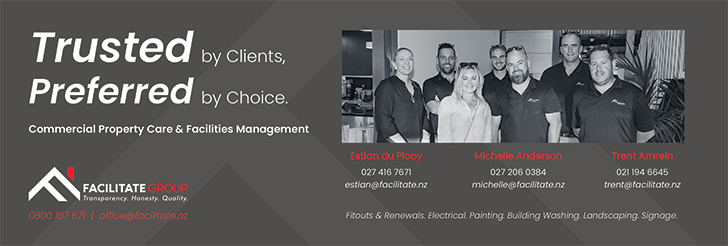Pricing is key when balancing profitability in Tauranga’s construction and facilities management sector. Characterised by its steady growth and strong emphasis on construction and facilities management, Tauranga’s commercial business economy faces a critical challenge – pricing effectively while maintaining quality and profitability.
Over the past six years, the local industry has undergone significant transformations, yet labour sell rates have stayed relatively flat since 2020, prior to the Covid pandemic. This trend mirrors national industry dynamics where competitive pressures have limited growth in wages and service pricing.
In Tauranga’s competitive landscape, businesses are tasked with two key objectives: preserving financial stability and expanding market share within the region.
However, in striving to meet these goals, many companies neglect the importance of sustainable mark-ups and margins. This oversight has often led to price wars that undermine long term viability, harming businesses and the wider local economy. Ultimately, this is a race to the bottom.
It is crucial to distinguish between temporary cashflow management solutions and enduring business strategies. Reducing prices may appear a good way to attract clients, but this approach can inadvertently set a precedent that proves harmful to all stakeholders. Suppressed labour sell rates risk stagnating wages and slowing economic progress, especially as inflation and living costs continue to rise.
The practice of pricing services at cost, as seen in some local businesses striving to retain employees, further contributes to a low value job market. Employers, compelled to hire the least expensive labour available, often encounter diminished service quality and heightened disputes over project variations.
These strategies, while understandable during periods of economic difficulty, should be approached cautiously to avoid eroding ethical business standards.
To succeed in Tauranga’s construction and facilities management sector, businesses must recognise the unique contributions of skilled technicians who often juggle multiple roles and responsibilities. Balancing quality service delivery with profitability requires thoughtful and strategic decision-making.
Striking a balance – quality v profitability
Achieving profitability is a cornerstone of long term business success, but it must not come at the expense of transparency, ethical practices, or quality. While clients frequently prioritise securing the lowest costs, this tendency can intensify unhealthy competition and degrade service standards.
Businesses that invest in skilled labour, quality materials and innovative techniques not only deliver superior results but also position themselves as leaders who justify higher pricing.
Transparent communication and building strong client relationships are essential for fostering trust and loyalty. These practices not only secure repeat business but also generate valuable referrals, allowing businesses to compete on the merits of their services rather than solely on price.
Navigating the art of pricing in Tauranga’s construction and facilities management sector requires a deliberate approach that emphasises sustainable margins and the fundamental value of quality work.
By maintaining profitability without compromising service standards, businesses can contribute positively to the local economy while ensuring their long term viability.
This balanced approach will not only benefit Tauranga’s commercial business landscape but also strengthen the broader community fabric.


